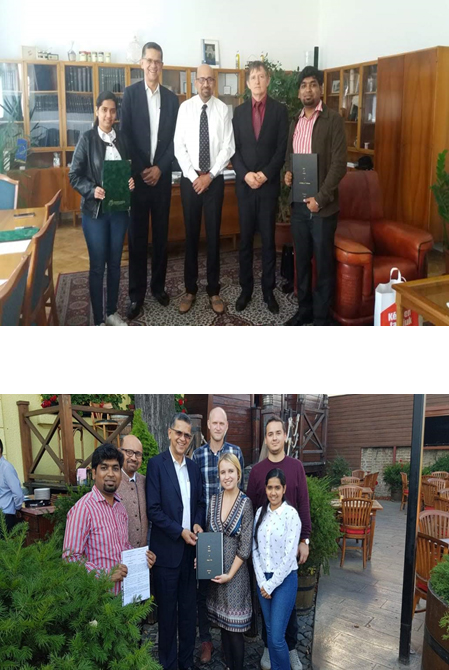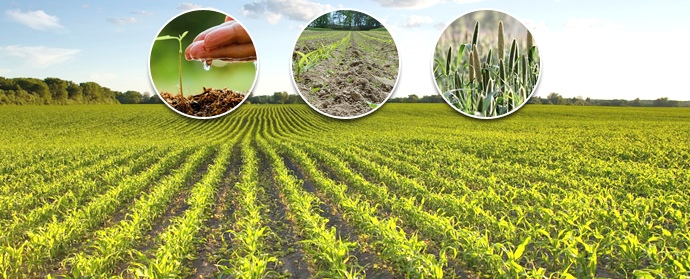India-Hungary Relations –
India and Hungary have enjoyed close and friendly relations since establishment of diplomatic relations in 1948. The relationship has been substantive and multifaceted. Hungarians are extremely grateful to India for India’s role in 1956 Uprising in Hungary. India’s intervention with Soviet Union saved the life of Dr. Arpad Goncz who subsequently served as President of Hungary from 1990 to 2000.
Since 1990, India and Hungary have signed several Agreements that have contributed to further intensification of bilateral relationship. These include: Double Taxation Avoidance Agreement, Bilateral Investment Protection and Promotion Agreement, Social Security Agreement, Agreements on Cooperation in Health, Agriculture, IT, Science and Technology and Defence. Both countries commemorated the 50th anniversary of establishment of diplomatic relations in 1998.
The visit of Prime Minister Gyurcsany took place during the 60th anniversary of establishment of diplomatic relations in 2008.
Prime Minister Viktor Orban led a 100-member strong delegation including a 80-member business delegation on his visit to Delhi and Mumbai from October 16-18, 2013 was very remarkable.
Indo-Hungary Agriculture Co-operation at Government Level –
India and Hungary had entered into an agreement for cooperation in the field of agriculture and allied sectors in 2008.
We do not have an information of a Joint Working Group, though in the recent past Ministry of Agriculture has not shown interest. The last meeting of the JWG was held in 2012.
We must check if the agreement would be of- use to initiate the dialogue between private sectors of both counties, in any way !!.
Agreement –
AGREEMENT BETWEEN THE MINISTRY OF AGRICULTURE OF THE REPUBLIC OF INDIA AND THE MINISTRY OF AGRICULTURE AND RURAL DEVELOPMENT OF THE REPUBLIC OF HUNGARY ON CO-OPERATION IN THE FIELD OF AGRICULTURE AND ALLIED SECTORS
The Ministry of Agriculture of the Republic of India and the Ministry of Agriculture and Rural Development of the Republic of Hungary (hereinafter referred to as the “Contracting Parties”),
Desiring to enhance the existing friendly relations between the two countries through development of cooperation in the fields of agricultural research and technology, agricultural production and food processing and economic cooperation, and
RECOGNIZING the advantages to be derived by their respective peoples from the promotion of such co-operation,
HAVE AGREED as follows:
Article I
The Contracting Parties shall promote cooperation in agricultural research and technology, agricultural production and food processing and economic cooperation,. and trade between the two countries through joint activities ‘and exchange to be determined and implemented through mutually agreed procedures.
Article II
The Joint activities and exchange programmes will be carried out in agricultural research and technology, agricultural production including horticulture, post harvest management including cold. chain, .agro processing, agricultural marketing, animal husbandry including dairying and aquaculture, phytosanitary issues relating to trade in plant and animal genetic resources, products, standards and certification.
Article III
1. The programmes and projects may take the following forms of cooperation:
a) Joint activities in the areas of research, training and further training promoting the economic and social development of agricultural production and food processing.
b) Organizing workshops, consultations, conferences, exchanges of scientific information and general documentation in the field of agricultural production and food processing.
c) Any other form of technical cooperation aid-ling at promoting the development of the food industry of the two Contracting Parties.
2. Upon the utilization of the results to be protected by licence, copy-right or on any other mode of protection mutually agreed between the Contracting Parties.
Article IV
The Contracting Parties shall promote cooperation through short and medium term programme within the framework of the joint activities mentioned in Article II. Biennial Work Plan will be drawn up by mutual agreement between the two parties to give effect to the objectives of this Agreement.
Article V
The Contracting Parties shall set up a Joint Working Group which shall be responsible for developing biennial Work Plans envisaged in Article IV of this Agreement. They will be responsible for coordinating and monitoring all activities carried out under auspices of this Agreement. The members of the Joint Working Group shall meet once very two years alternately in their respective countries to review the progress of activities and to facilitate further co-operation.
Article VI
The Contracting Parties shall encourage and facilitate direct contacts between institutions and other agencies of research, development and training to work towards long-term co-operation.
Article VII
The sending Party will bear the costs of international air transportation and the receiving party will provide local hospitality for persons deputed under Work Plan cooperation programme pursuant to this Agreement. Activities pursuant to this Agreement are subject to the availability of resources and to the respective laws and regulations of the Contracting Parties.
Article I
(Agriculture Research & Technology ): University of Debrecen forged a new international – partnership to popularize Smart Food globally.
An MOU was signed Between University of Debrecen and the International Crops Research Institute of the Semi-Arid Tropics (ICRISAT) on Saturday 10 June 2017.
This should open opportunities for a wider range of international partnerships and initiatives. It will also develop co-operation and collaboration for research, development, training and internships. In particular will be collaboration on a global initiative for Smart Food. Smart Food is defined as food that is: good for you; good for the planet; and good for the smallholder farmer.
Professor Istvan Komlosi Dean Agriculture faculty university of Debrecen has been very pro- active in supporting the idea of collaborative project on Smart food. UNIDEB will be engaged in market linkages / product development in Europe for Millet products coming from India and Africa grown by small holder farmers. Test marketing can be done in Hungary and two other targeted countries. Spin off company to kick start the promotion activities is envisaged in near future.
Joanna Kane-Potaka, Director – External Relations and Strategic Marketing of ICRISAT, visited UNIDEB to arrange the MOU signing and initiate the collaborations on Smart Food. Ashish Wele Independent corporate consultant of UNIDEB will be engaged in implementing the project and shall be responsible as a facilitator.
Initial efforts will be made to develop the European markets for millets and sorghum. This will be possible with ICRISAT’s strong engagement with farmers in Africa and India and with University of Debrecen’s strong departments in marketing, food processing and holistic approach to value chain development.

Fig.1
Article II
The joint activities and exchange programmes.

Fig.1

Fig.1
Education & Research collaborations. Plan to kick start joint courses for Indian students.
There is also very good potential for private sector partnerships in Bio-input manufacturing and trade business.
Article III & IV
Public / Private partnerships & Scaling up of technology through incubation etc.
UNIDEB _ MRIDA MoU & MRIDA _Glulu Free from MoU

Fig.1
Mrida – UNIDEB MoU.. A Way forward

Fig.1
Makes your life healthier
Outline –
MoU Background
Crop cultivation at Nyiregyhaza
Pearl Millet Dhanashakti
Way forward-

Fig.1
MoU Background –
To Develop Health oriented food products in Europe, with Hungarian production base.
To do innovation in the field of Millet based food product.
Explore collaborative opportunities in Agriculture.
To provide internship opportunities to International students at Hungary & India in future operations.
Establish strong bonds with Agriculture research and Development between India & Hungary.
Explore various opportunities for working under social entrepreneurship.
Crop cultivation at Nyiregyhaza
1 hector of land for cultivation of Peal millet .
Special bio-fortified pearl millet seed sourced from the top research institute- ICRISAT.
Cultivated in the month of June 2018 and harvested in SEPTEMBER 2018
Got very good yield.
The Iron content is 89 mg/kg of pearl millet (Which is excellent amount in terms of geological occurrence with soil).
Planned for next term to take in larger field.
Ready to prepare different millet based products.
It contains excellent nutritional properties.
Requires less water for per unit production.
Few Snaps Of Cultivation At Nyiregyhaza –

Fig.1
Way forward –
Potentially increasing the area in Hungary for Pearl Millet cultivation with engagement of local farmers.
Preparing Different Flours and Products with base of different millets.
Collaborating with distributors & local partners for promoting healthy foods & wellness concept.
Proposed social entrepreneurship in community college through Mrida’s initiative.
Providing different collaborative opportunities in the field of Agriculture between India and Hungary.

Background Of MoU & Activities –
The MoU is mainly focused on new product development.
Products development focused on millets base, which will be Free From such as Gluten free, Sugar free, Dairy free etc.
Marketing planned in European region.
Products prepared by MRIDA with GLULU


Products prepared by Mrida- Glulu under Smart food initiative in Hungary –

Production of the Newly Developed Products using Millets –
Present Status
Development of the targeted products is achieved.
Products are presently in test marketing stage.
Soon products will be launched in the market.

